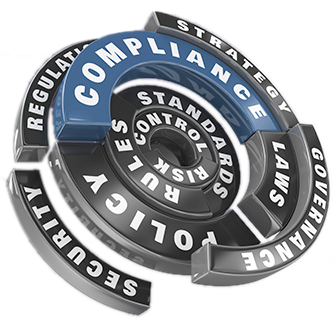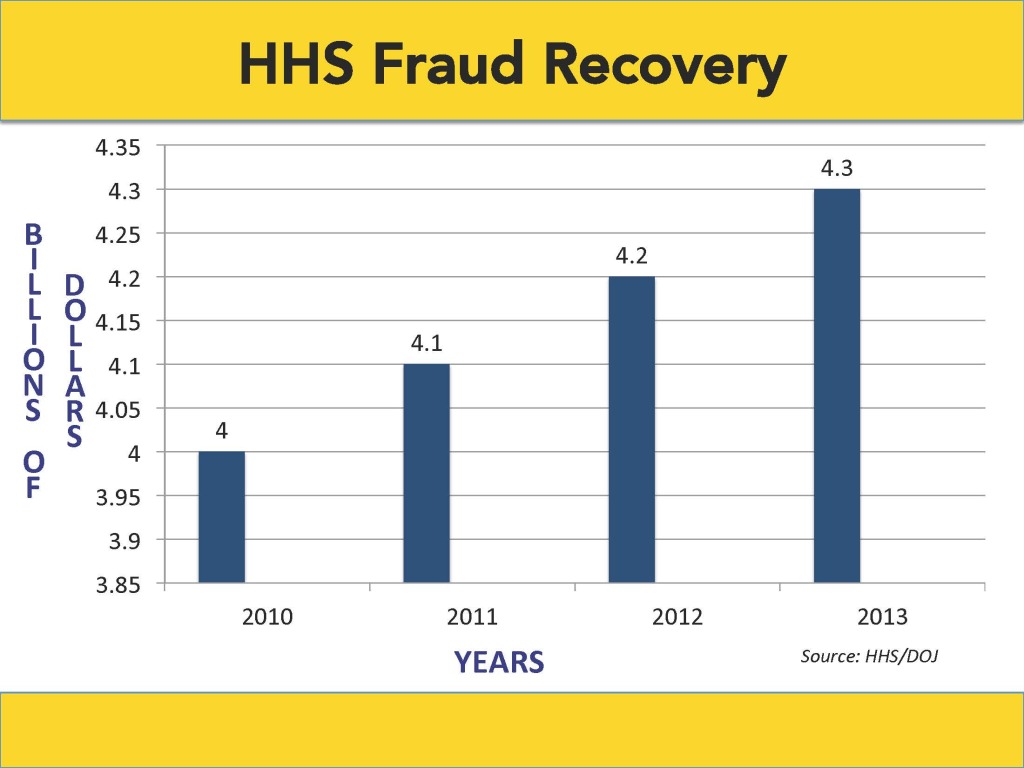What defines Fraud, Waste and Abuse?
Every individual has the responsibility to detect and report any unnecessary costs being incurred on Federal Healthcare Programs. These unnecessary costs could be attributed to Fraud, Waste and/or Abuse (FWA). Data from Health and Human Services and the Department of Justice shows the continued success with recovery efforts due to increased enforcement.
As defined by United States Code 1347, Fraud is “knowingly and willfully executing, or attempting to execute, a scheme or artifice to defraud any health care benefit program; or to obtain, by means of false or fraudulent pretenses, representations, or promises, any of the money or property owned by, or under the custody or control of, any health care benefit program.” Simply, it is illegal to intentionally submit false information to the government in order to receive a monetary or other benefit. Fraudulent activity can be criminal or civil.
In contrast, waste and abuse do not require intent and knowledge of wrongdoing. Abuse is payment for items or services that have no substantiated basis for payment and for which the provider has not knowingly and/or intentionally tried to obtain the payment. Waste is overutilization of services and is not generally thought to be a result of criminal negligence.
Potential penalties for FWA depend on the type of violation and include Civil Prosecution and Civil Monetary Penalties, Criminal Conviction or Fines, Revocation of License, Imprisonment or Exclusion from Federal Healthcare Programs.
Your Code of Conduct should clearly state the obligation and method to report FWA. To ensure the willingness of employees to report, your strict non-retaliation policy should also be included. Each report of potential FWA should be thoroughly investigated and if necessary, corrective action implemented immediately.
The simplest and most ethical approach to combat Fraud, Waste and Abuse is prevention, detection and correction.


